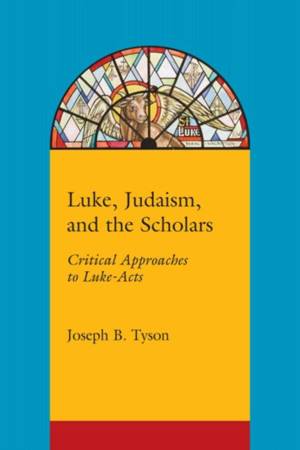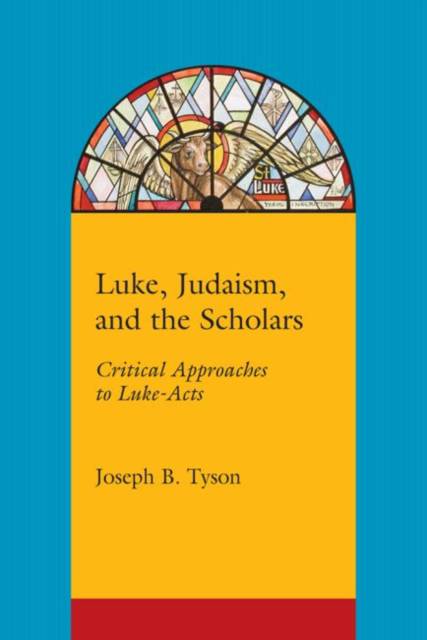
- Afhalen na 1 uur in een winkel met voorraad
- In januari gratis thuislevering in België
- Ruim aanbod met 7 miljoen producten
- Afhalen na 1 uur in een winkel met voorraad
- In januari gratis thuislevering in België
- Ruim aanbod met 7 miljoen producten
Omschrijving
Sorting out what scholars say about Luke's characterization of the Jews
Joseph B. Tyson surveys the history of critical scholarship on the Gospel of Luke and the Acts of the Apostles and draws particular attention to the interpretation of Luke's treatment of Jews and Judaism. Noting that the Holocaust was a major turning point in the history of New Testament scholarship, Tyson demonstrates that the events of 1933-1945 have similarly influenced the study of Luke's writings. He suggests that, as the most perplexing of New Testament texts in its ambivalence toward Judaism, Luke-Acts has left scholars ample room for extrapolation on the question of how Luke meant to portray first-century Jews. In this volume Tyson traces the evolution of scholarly views of the text over the past two centuries.
Tyson explains that nineteenth-century scholars tended to portray first-century Judaism as moribund and casuistic but that, at the end of the twentieth century, scholars generally present the religion of this early period in a far more flattering light. He shows how Luke's mixed signals in Luke-Acts encourage both positive and negative portrayals. In what the text says about Jesus and his followers, there can be found instances of Jews who support the new messianic movement and of others who vigorously oppose it.
Tyson's assessment focuses on pre-Holocaust and post-Holocaust scholars whose studies of the New Testament have shaped the ways in which we customarily view these texts today. He examines the work of leading New Testament scholars, among them Ferdinand Christian Baur, Adolf von Harnack, Adolf Schlatter, Ernst Haenchen, Hans Conzelmann, and Jacob Jervell. Tyson also discusses the work of three contemporary American scholars--Jack T. Sanders, Robert L. Brawley, and Robert C. Tannehill.
Specificaties
Betrokkenen
- Auteur(s):
- Uitgeverij:
Inhoud
- Aantal bladzijden:
- 196
- Taal:
- Engels
Eigenschappen
- Productcode (EAN):
- 9781570039645
- Verschijningsdatum:
- 25/11/2010
- Uitvoering:
- Paperback
- Formaat:
- Trade paperback (VS)
- Afmetingen:
- 152 mm x 229 mm
- Gewicht:
- 312 g

Alleen bij Standaard Boekhandel
Beoordelingen
We publiceren alleen reviews die voldoen aan de voorwaarden voor reviews. Bekijk onze voorwaarden voor reviews.









